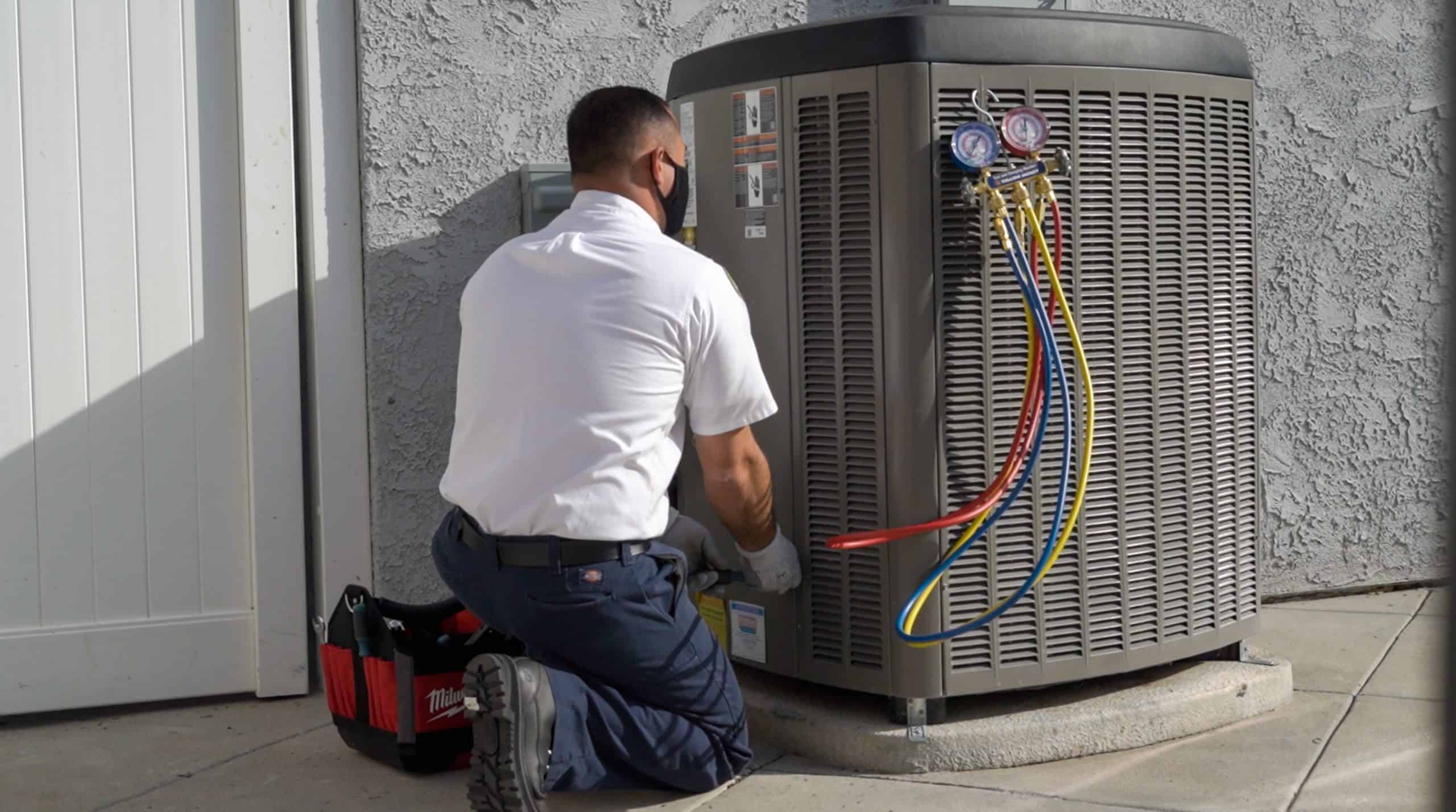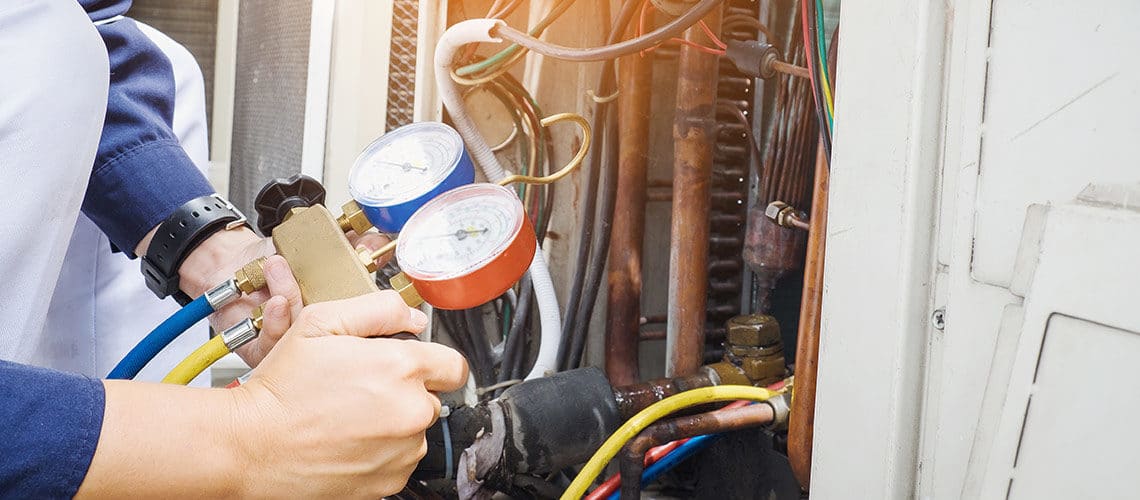Cooling Solutions You Can Count On by DMAKS HVAC Professionals.
Cooling Solutions You Can Count On by DMAKS HVAC Professionals.
Blog Article
How to Choose the Right HVAC System for Your Demands
Choosing the ideal Heating and cooling system is a crucial choice that calls for careful factor to consider of various elements. The myriad of system kinds available can complicate this process, leading one to question which course ultimately leads to ideal convenience and efficiency.
Evaluate Your Home Dimension
Assessing your home size is a vital primary step in choosing the appropriate heating and cooling system. The dimension of your home directly affects the cooling and heating ability required for reliable environment control. A HVAC system that is too little will have a hard time to keep comfy temperature levels, leading to increased energy usage and endure the system. On the other hand, an extra-large system can cause brief biking, poor moisture control, and ineffective procedure.
To precisely examine your home size, measure the square footage of each room, considering variables such as ceiling elevation and the design. Additionally, consider the insulation top quality and the variety of home windows, as these aspects influence thermal performance. Homes with open layout might call for different system configurations contrasted to those with several split areas.
Utilizing the Guidebook J tons calculation approach can supply a more precise price quote of your a/c needs. This approach represent various aspects, including neighborhood environment, solar gain, and occupancy patterns. By carefully reviewing these elements, you can ensure that your picked heating and cooling system is suitably sized, causing enhanced convenience, energy effectiveness, and longevity of the devices.
Determine Your Budget
Identifying your budget is an essential step in the a/c system selection process, as it establishes the parameters for your alternatives - DMAKS HVAC. A heating and cooling system is a substantial investment, and comprehending your economic limitations will certainly help narrow down selections that fit within your means
Begin by examining not just the initial purchase rate but likewise setup prices, which can vary substantially relying on the complexity of the job. In addition, consider continuous costs such as upkeep, repairs, and energy usage. A system might appear cost effective originally but can result in higher expenses gradually if it is much less reliable.
It is suggested to allocate a contingency fund for unexpected expenses that may arise during installation or initial system adjustments (DMAKS HVAC). Furthermore, check out financing options or rebates that may be available, as these can ease the burden of upfront costs
Eventually, having a clear budget enables you to engage with cooling and heating experts more properly, ensuring you obtain tailored suggestions that lines up with your financial objectives and home requirements. By being attentive concerning your spending plan, you can make educated choices that improve convenience without jeopardizing monetary security.
Evaluate Energy Efficiency
Power effectiveness plays an essential function in the Related Site overall performance and cost-effectiveness of your HVAC system. When choosing a system, it is vital to consider its power efficiency rankings, as these figures directly influence your energy bills and ecological impact. Search for systems with a high Seasonal Power Performance Ratio (SEER) for cooling and a high Yearly Gas Utilization Effectiveness (AFUE) ranking for heating. Higher scores show better efficiency, indicating even more convenience for less energy usage.
Additionally, consider the Energy Star accreditation, which symbolizes that the system fulfills rigorous performance standards established by the Epa. Investing in an Energy Star-rated HVAC system can lead to significant savings over time, particularly in areas with extreme temperature level variations.
An additional variable to review is the system's dimension and capability. A large or undersized unit can lead to inefficiency and increased power prices. DMAKS HVAC. get redirected here Appropriate sizing, commonly figured out with a Hands-on J load estimation, makes certain that the system runs at ideal efficiency


Think About Environment and Setting
When picking a HVAC system, it is essential to think about the regional climate and environmental conditions, as these elements considerably influence the system's performance and efficiency. Different regions experience differing temperature level extremes, moisture degrees, and seasonal modifications, all of which effect heating and cooling demands.

Moreover, regional ecological elements, such as air top quality and potential allergens, must inform your option. Equipments equipped with sophisticated purification technologies can assist minimize pollutants and offer cleaner air. In addition, consider the energy sources offered in your location-- some HVAC systems are a lot more reliable when powered by all-natural gas or renewable resource sources.
Eventually, straightening your cooling and heating system selection with your local climate and environmental factors to consider will certainly bring about enhanced comfort, boosted efficiency, and lower energy costs.
Explore System Types and Functions
As house owners look for to maximize convenience and performance, discovering the numerous kinds of cooling and heating systems and their unique features becomes important. The primary kinds of heating and cooling systems include air conditioning, heat pumps, ductless mini-split systems, and furnaces. Each system offers distinctive benefits customized to various requirements and preferences.
Central air systems offer uniform air conditioning throughout a home, making them excellent for bigger rooms. Heatpump serve as both heating and cooling down remedies, making use of electrical energy to transfer heat, which can cause reduced energy costs. Ductless mini-split systems are becoming significantly prominent because of their flexibility and convenience of installment, enabling property owners to control the temperature level in private rooms without considerable ductwork.

Conclusion
Finally, picking the appropriate heating and cooling system requires mindful factor to consider of numerous factors, including home size, budget plan restraints, power performance, local environment, and available system types. An extensive evaluation of these aspects makes certain optimum convenience and cost-effectiveness. By adhering to an organized approach, homeowners can make informed decisions that align with their specific needs and choices, eventually causing improved indoor air high quality and energy savings.
Report this page